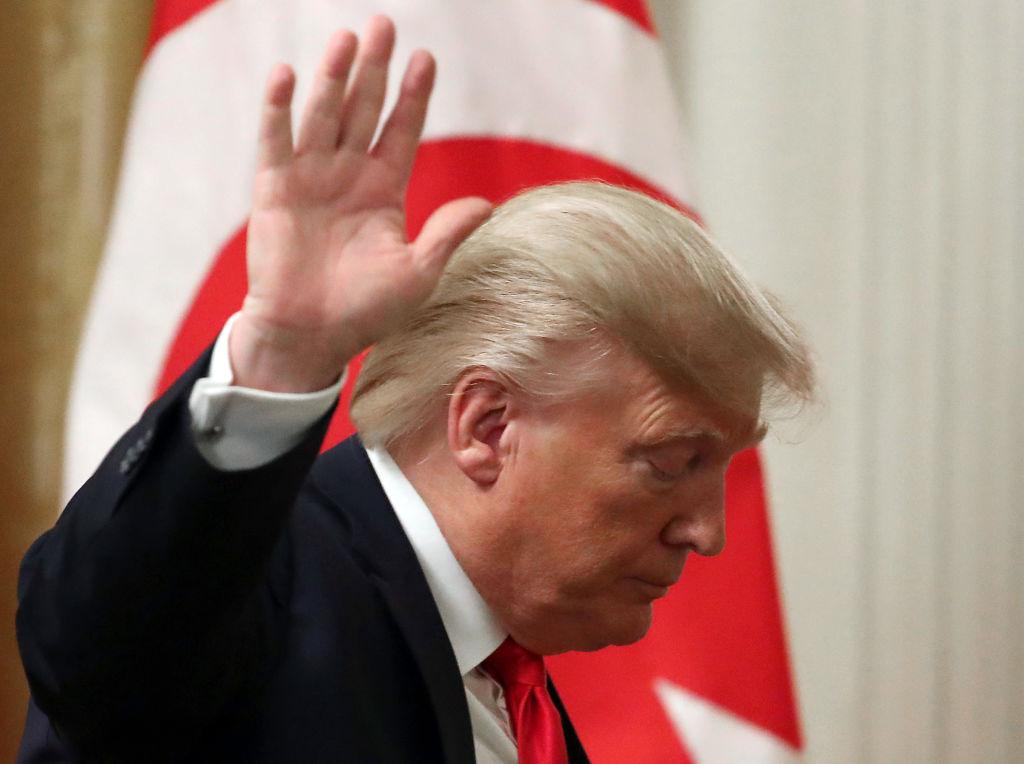Welcome to the post-American world
Posted By Carl Bildt on April 29, 2020 @ 10:30

The first global crisis of the post-American era is here. The fallout from the Covid-19 pandemic will shape the world for years to come.
For the better part of a century, the United States has always come forward during times of crisis to exercise some sort of leadership. Sometimes, this contribution has been mostly welcomed; other times, it hasn’t been. And the results haven’t always turned out as planned. But the basic American instinct to lead was there. For better or worse, the rest of the world had grown accustomed to it.
With Donald Trump in the White House, the age of American leadership is over. Already during Barack Obama’s presidency, the US was scaling back its global commitments, in recognition of the fact that it didn’t have the resources to tackle every problem. But even if the US was sometimes ‘leading from behind [1]’, it was still leading.
What might have been a recognition of necessity under Obama has turned into an unquestioned, loudly proclaimed principle under Trump. On the matter of America’s role in the world, Trump is practising—with a vengeance—what he preached during his presidential campaign. For the past three years, ‘America first, and everyone else alone’ has been the message blaring from the White House.
The real-world implications of this change have now been laid bare. Back in 2014, when Ebola started spreading in West Africa, there was a serious risk that a regional outbreak could turn into a global calamity. But the Obama administration stepped in. Working closely with the World Health Organization, the US mobilised a global response and ultimately contained the epidemic. Never did it occur to anyone to label Ebola the ‘African virus’, or to accuse the WHO of neglect and malfeasance.
Since then, the spirit of global cooperation has been under constant assault. Under Trump, the US launched a trade war against China and its own allies, and abandoned major global agreements like the 2015 Paris climate accord and the Iran nuclear deal. A fierce bilateral struggle for control of the digital economy has been escalating for years.
Owing to these tensions, the UN Security Council has been effectively absent throughout the Covid-19 crisis. UN Secretary-General António Guterres has called for action, but the US and Russia have dragged their feet, and the rest of the Security Council has remained silent on the issue. While one might have hoped that the G20 would reprise the critical role it played during the 2008 financial crisis, the forum is currently under the presidency of Saudi Arabia, and thus effectively of that country’s erratic young leader, Crown Prince Mohammed bin Salman.
Meanwhile, China has been stepping into the breach, paying lip service to global governance but primarily seeking to develop its bilateral relationships. Chinese shipments of face masks and other items have been sent with the request that they receive an official welcome—national flags and all. The help has certainly been appreciated, but China’s ulterior motives are all too obvious.
Equally obvious is the fact that much more could have been done to limit the spread of the virus during the early weeks of the outbreak in Wuhan. China’s government has deservedly taken a beating for these failures, and it hasn’t gone unnoticed that the situation was handled much better in democratic Taiwan.
In due time, there will be a more open—and probably heated—discussion about how different countries, leaders and international organisations handled the Covid-19 challenge. China certainly isn’t the only place where the official response has left something to be desired. But post-mortems are for after the fact. The immediate priority is to mobilise all available resources to contain the pandemic. With the epicentre having already moved from East Asia to Western Europe and then to the US, no one should assume that the story is over.
After all, barring a strong, sustained international response, what will happen in Indonesia, Pakistan, Egypt, Nigeria, Brazil or any other major country with dense urban populations? With America absent and China’s credibility dented, there’s an urgent need for someone to assume the mantle of leadership and start mobilising a coordinated response, be it through the WHO or in some other way. A pandemic is like a forest fire: if you haven’t extinguished it everywhere, then you haven’t extinguished it at all.
Could the European Union step up, or is it too consumed by its own problems? Could some entirely new coalition be forged to get the ball rolling, or is the international order destined to devolve further into a nebulous hodgepodge of multipolarity and power politics, where the only truly global phenomenon is a deadly virus? In a post-American world, these are the questions one must ask.
Article printed from The Strategist: https://aspistrategist.ru
URL to article: /welcome-to-the-post-american-world/
URLs in this post:
[1] leading from behind: https://www.newyorker.com/magazine/2011/05/02/the-consequentialist
Click here to print.